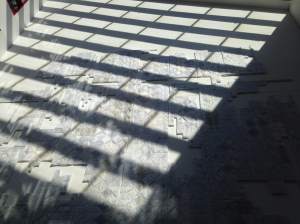Zinsser’s essay, “College Pressures” gave me a new perspective on what college pressure looks like for people. I’ve always been a “beat to your own drum” kind of person and I always got support from my parents in what I wanted to do. They’re motto was always “do what makes you happy.” The pressure succeed in this timeline of life was never shoved in my face by them, but rather society. I was never pressured by my parents to do anything I didn’t want to do, but society on the other hand, had influenced a lot of my decisions early on in my college career.
I constantly felt I had to complete college in 4 years and take the hardest classes and get a 4.0 every semester, and join multiple clubs. If I wanted a chance at grad school and a good paying job later on in life, then working myself to the bone at age 18 was what had to be done. I learned very quickly that society didn’t have the power and control, I did. Society’s route was making me miserable. I stated to truly hate school and I forgot the meaning of learning. I was invested in a major I dreaded, and thinking about my future brought tears to my eyes. That’s when I decided to take time off and really explore life outside of the classroom setting. I felt experience and experiential based things were going to give me the skills to succeed and also give me the opportunity to find out what it is I really wanted to do and how I imagined spending the rest of my life.
My taking time away from the societal pressures of college, I was able to truly understand myself and what I wanted to do for the rest of my life. I was under no obligation to complete papers, have deadlines, or study for exams until 2 in the morning. I tried new things that I wasn’t graded on or could base my worth off of, but rather things were I was able to get constructive feedback and utilize the tools I learned and implement them in my everyday life. So many students base their self-worth off of their GPA and automatically consider themselves failures before they even begin. There is so much more to a person (and to school) than a GPA or a class ranking, and the American education system makes that near impossible for students to see.
I think if students were able to try new things and experience other opportunities that sound intriguing to them without the fear of failing or being graded, then they’d be more apt to trying new things and stepping outside of their comfort zone. We need to stop beating students to the ground. But until we start building students up and letting them know that there is so much more to life than grades and all-nighters, not much will change with these pressures. These pressures have too much power. If we don’t recognize and address them effectively, they will continue to destroy happiness, self-esteem, and quality of life.



